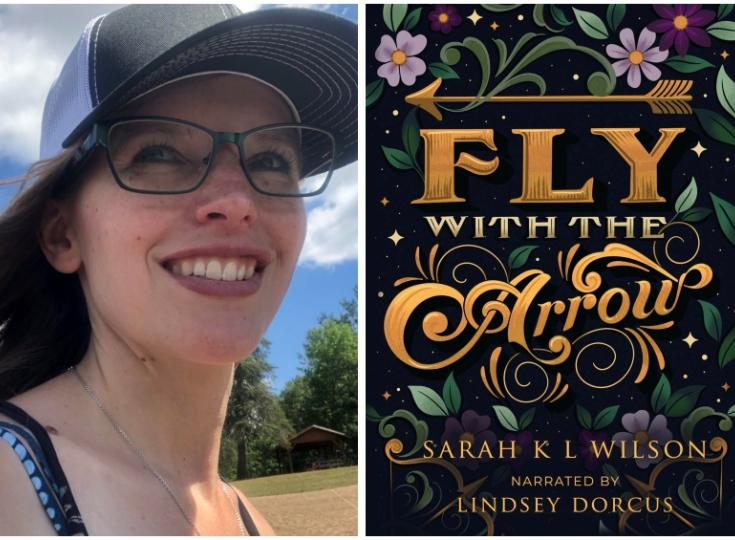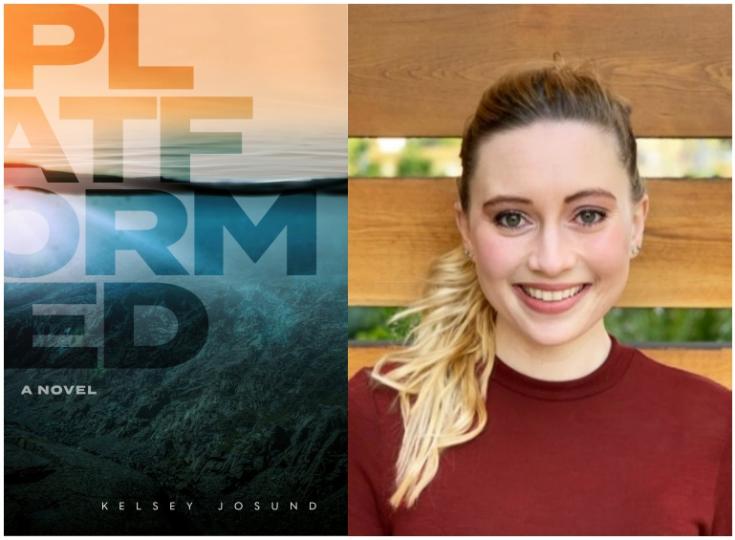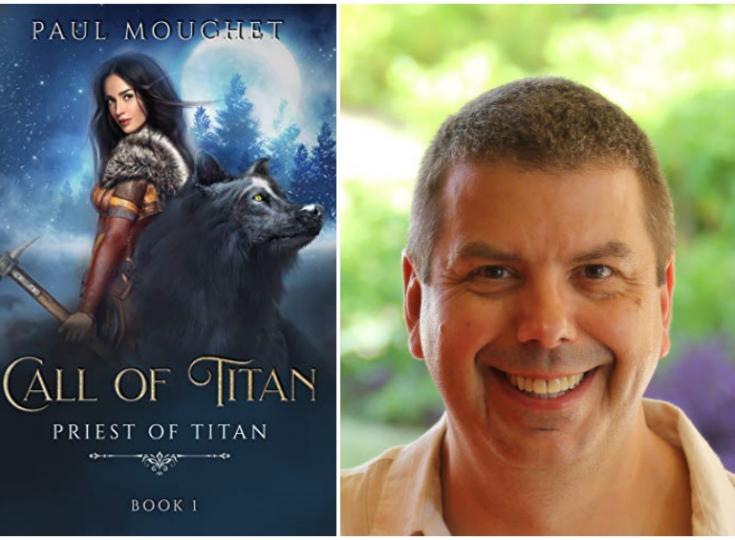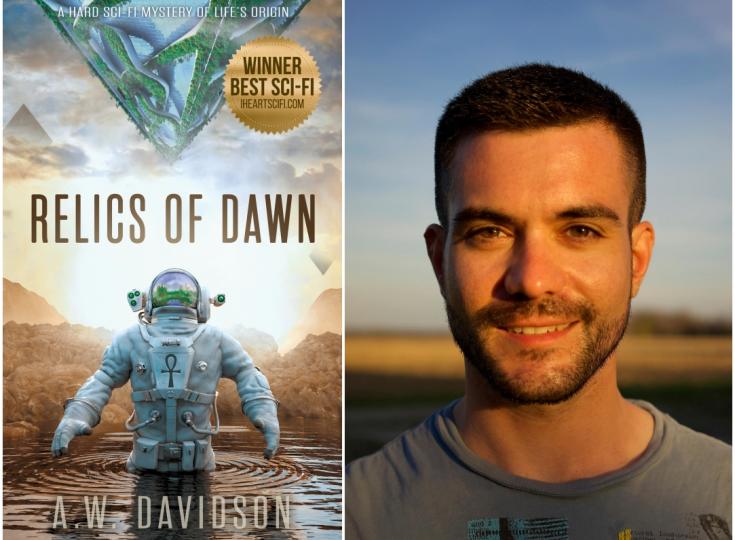Elin Barnes - Murder & Mystery in Silicon Valley
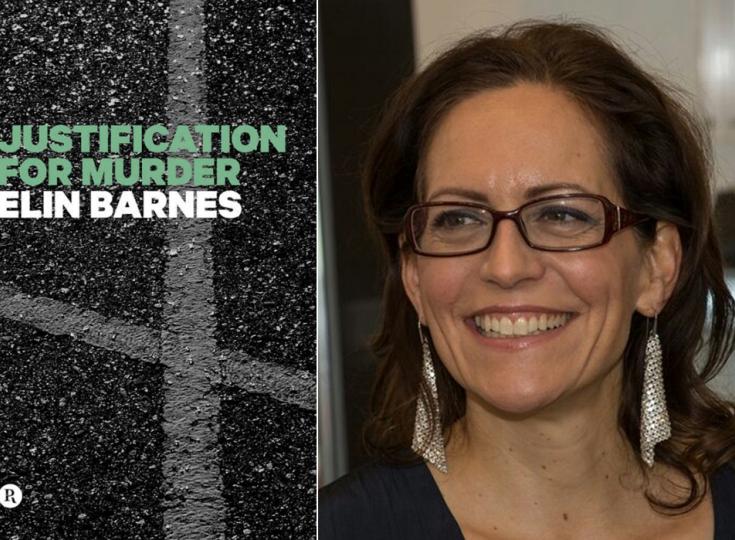
Elin Barnes has done many different things in her life, like being a flight instructor, working for a criminal appeals lawyer and working for many big name technology companies in Silicon Valley (Google, Apple etc.). But the one thing that she never thought would actually happen is to write (and finish) a book. Her debut novel, Justification for Murder, has, in the meantime, earned rave reviews and grown into a series. As our author of the day, Barnes reveals why she picked Silicon Valley as the backdrop, her inspiration behind writing a biomedical thriller and how she went for ride-alongs with the San Jose Police Department.
Please give us a short introduction to Justification for Murder
Justification for Murder is a biomedical thriller set in Silicon Valley. The story starts when Darcy Lynch, a detective with the Santa Clara Sheriff’s Office, responds to a hit and run that soon gets connected to a series of murders and bizarre suicides. He must work with his partner, who despises him, to protect Saffron Meadows, the intended victim of the car crash, and catch the killer before more people die.
In this novel, I wanted to explore how far people would go to get something they desperately needed, using the backdrop of Silicon Valley, where the cut-throat world of technology and innovation operates side-by-side with the coarse realm of law enforcement.
You have held a wide range of jobs: from being a pilot to working in law and in technology. How have all of these experiences influenced your writing?
Even when you write fiction, almost everything that comes out on the page spawns from something you’ve experienced yourself, heard, read or researched. I think much of our imagination is shaped based on the lives we’ve lived. One of the reasons I’ve done so many things is because I’m easily bored and always willing to try something new. That’s why I love writing books, you submerge yourself into something day and night, but when it’s over, you move on to a completely new challenge.
What inspired you to write Justification for Murder?
A few years back, the doctor found a lump in my breast (it turned out to be benign), but I had to get a biopsy. The entire experience was traumatic. When I learned that they put a tiny titanium marker to differentiate the biopsied lump from any new ones, I got the idea for the book. I shared the plot with a friend, I talked with my hands, my face beamed, and my eyes shone, as it always happens when I’m excited about something. When I was done, my friend looked at me and said, “that’s the stupidest idea I’ve ever heard” and proceeded to tell me why. He was right, it was a dumb idea, but it served as the springboard to a long brainstorming session where Justification for Murder was really born—as a much better story.
Tell us a bit more about Darcy Lynch. Who is he and how was he "born" in your mind?
Darcy Lynch is a bit like a fallen star. He had a brilliant career in Seattle but because of a misjudgment, one of his confidential informants is killed. He can’t forgive himself, but isn’t ready to leave law enforcement yet, so he moves to California and takes a desk job at the Santa Clara Sheriff’s Office while he re-evaluates his life. He doesn’t fit with the new team, but he doesn’t really care. When he gets called to a routine hit and run that soon gets connected to a serial of murders, he has to decide who he’s going to be: a loser, or the cop he once was.
I wanted Darcy to be as human as possible and a little broken, but not be the overdone protagonist battling with substance abuse or still being haunted by a lost wife and kids. He feels inadequate and guilty, but he is a good person and a great detective and his quest to right wrongs ultimately drives his actions.
Darcy was born out of necessity. The first 80 pages of Justification for Murder didn’t have any cops. I wanted my protagonists to be regular people because I was too worried about making law enforcement procedural mistakes in the book. But the story felt forced and contrived. I kept thinking, “nobody does this stuff.” In a moment of clarity, I threw all the characters out, but Saffron, and started from scratch with Darcy Lynch and Erik Sorensen. After I wrote their first interaction, I knew I had made the right decision.
Why did you pick Silicon Valley as a backdrop for your book?
The easy answer is because it is a fascinating place. Every day, something new is invented here. Because I write a series, it was important for me to make each book unique with more than just a different crime, and Silicon Valley offered me hundreds of intriguing ideas without having to write science fiction.
I also work and live in the Bay Area, which gives me first-hand experience with many of the technologies that fascinate me. With the help of local experts, I can write a realistic biomedical thriller, a patent law thriller, or one about a gang misusing drones—because all of these things and a million more are happening here on a daily basis.
Justification for Murder was your debut novel. What was the experience like?
It was weird. I actually started writing “just to see how far I would get.” I never really expected to finish it, much less publish the book. But then, I was done with the first draft and begun editing: fixing the plot, the loose ends, character names (you wouldn’t believe how many times I changed names before the work was done), the timeline, etc, etc. When I thought I could not look at it anymore, I hired an amazing editor who fixed all my grammar, typos, and point of view issues and I put the book out in the wild. People started reading it and giving reviews, mostly really positive, and one day it hit me, “holy crap, I’m an author!”
Did you know right from the start you were going to make this into a series?
Probably not from the start as I wasn’t even sure I would finish the first one. But once it was done, I had the idea for Smoke Screen and it made total sense for me to continue the series. I also really fell in love with the characters, so I wanted to keep “spending time with them.” Ok, that sounds creepy, but as a writer you spend so much time with your characters that you need to really like them, or writing becomes a dreadful job.
Although your work is fictional, it is entirely believable. How much research did it require from you to pull this off?
A lot. I did ride-alongs with the San Jose Police Department and the Santa Clara Sheriff’s Office, interviewed cops and people who worked in biomedical startups, and read a lot online. I want my books to be as realistic as possible, and for that, I need to know how things work in real life first.
Justification for Murder contains some very graphic scenes. Was this intentional?
Yes. When I started writing, I decided I was going to write exactly the book I wanted to write, without worrying about what was “acceptable” to do. I used to read a lot of horror when I was younger and I liked gore. I decided I was going to have violence and sex in the book. I think I got that out of my system now and the subsequent books don’t have a lot of gore, if at all, and don’t have sex either.
Readers report that you held their attention right until the end. What is your secret to keeping readers at the edge of their seats?
Ah, thank you! I’m what it’s normally referred to in the writing community as a “pantster,” which means I don’t plot, I just sit in front of a blank page and write. It doesn’t mean I don’t think about the story. My mind is always on the story, but once I start writing, things go where they go. Funny enough, I was in the middle of writing Justification for Murder and I did something unthinkable. I had no idea I was going to do it and even less how I was going to get out of it. I remember calling my mom and telling her what I had just done (it’s a major spoiler, so I won’t share it here). She thought I was crazy and suggested I throw it out. But I liked the daring situation I had created it and decided to go with it. I like embracing the challenges and seeing what comes out at the other end.
Having said this, I spend a lot of time on the revision process making sure there are no loose ends, plot problems or timeline issues. That’s part of being a writer, at the end, the book has to make sense and be believable, no matter how you write.
Besides writing, what other secret skills do you have?
In one of my research adventures, I went to see the San Jose PD MERGE Team (their name for SWAT) practice. After the training, the instructor took me under his wing and taught me how to shoot a rifle. I shot eight rounds and hit the bull’s eye every time at 50 yards at night. I have no idea if that was beginner’s luck or if I really am a good marksman, but that was one of the coolest things I’ve ever done. And now I know I’m ready for the Zombie Apocalypse!
Tell us a bit more about your writing habits. When and where do you write? How do you stay productive?
Because I have a regular job, my writing habits are pretty poor. Depending on where I am in the process, I try to write every weekend. As I get closer to finishing the first draft or a final edit, I give myself deadlines, so I stay focused. Once I’ve set dates, I work on the book almost every day and about 12-20 hours on the weekends.
Sometimes I write at home, on my sofa or at my balcony. Other days I meet up with my best friend, also a writer, and we go to a coffee shop, where we both put on our headphones and listen to music while we write. I’m sure it’s a little weird for others to see us like that, but we keep each other accountable and make more progress that way.
What are you working on right now?
Final edits for Blood Allegiance, the third book in The Darcy Lynch Series. It’s been long in the making, so I’m very excited to have it go live on November 10th.
Where can our readers discover more of your work or interact with you?
I have a website where they can contact me directly, check out my latest author events, and learn more about my other books. I also have author pages on Facebook, Amazon, and GoodReads.
